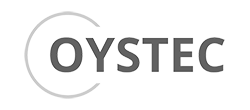The field of project management is constantly evolving, and staying current with the latest processes and best practices is crucial for success. For this, the PMI ® PMBOK® 7 Standard, published in Aug. 2021, was aiming to provide a modern, solid foundation. Though, certain areas that were carefully covered until the earlier version PMBOK® 6 (which are in particular Process Groups and Knowledge Management Areas) were not anymore included in the current PMBOK® 7. Instead, the focus was changed to so-called Project Performance Domains and Project Management Principles. This led to irritations whether the other areas are still important, or not. Also we wrote an article about that.
But there is good news: PMI® has recently published "Process Groups: A Practice Guide", a comprehensive supplementary book, in Nov. 2022. PMI® Members can download it here, others can purchase it e.g. on Amazon. This book serves as a valuable addition to PMBOK® 7 by reinstating the successful Process Groups and Knowledge Management Areas. Project Managers who want to utilize PMBOK® 7 in their projects as well as Organizations looking to design or update their Project Management Methodology can finally proceed with confidence, thanks to PMI®'s new supplement.
General
In general, this guidebook is designed to assist Project Managers with the initiation, planning, execution, monitoring, and control, and closing of their projects. To do so, the standard delves into the five Process Groups (with their 49 processes contained) and provides detailed information on the inputs, tools, and techniques, and outputs related to each process. These procedures are widely regarded as best practices for most projects, and the guidebook aims to address any confusion that managers and team members had with the PMBOK® 7 alone.
Project Process Groups
The well-know Process Groups being brought back are:
| Initiating | Launching a new project or phase. |
| Planning | Defining and planning project scope and execution. |
| Executing | Completing project activities and tasks. |
| Monitoring & Controlling | Tracking, monitoring, and controlling project progress. |
| Closing | Finalizing and completing a project or phase. |
So, remember that the new ‘Project Management Principles’ do not replace these ‘Process Groups’ as some have thought. But there is more to it than just this.
Project Knowledge Management Areas
While the guidebook doesn't explicitly enumerate and detail also the well-known 10 Knowledge Management Areas either, as PMBOK® 6 did, it still aligns with the framework through the 49 processes it covers. For instance, processes such as "Define Scope" can be found under the ‘Scope Management’ area in the planning processes, and "Develop Schedule" falls under the ‘Schedule Management’ area, and so on and so forth. Let us therefore be clear what these 10 areas are:
| Project Integration Management | Coordinating all aspects of the project. |
| Project Scope Management | Defining the project's necessary work. |
| Project Time Management | Managing project completion timing. |
| Project Cost Management | Managing costs to stay within budget. |
| Project Quality Management | Meeting or exceeding stakeholder's expectations. |
| Project Resource Management | Managing project team members. |
| Project Communications Management | Managing project information distribution. |
| Project Risk Management | Managing project risks. |
| Project Procurement Management | Acquiring goods, services, or results. |
| Project Stakeholder Management | Identifying and engaging stakeholders. |
Therefore, also here it has to be underlined that the new ‘Project Performance Domains’ do not replace these ‘Project Knowledge Management’ areas.
Resume
The recent publication of the "Process Groups: A Practice Guide" serves as a crucial complement to the PMBOK® 7 Guide, making it finally the perfect moment for companies to transition away from PMBOK® 6 and embrace both PMBOK® 7 as well as the guidebook for the success of their projects, to create (or update) their Project Management Methodology, and to train their Project Managers. Only with the combination of both, can companies fully realize their project management potential. The utilization of now four, not just two, process and management areas in total may however require a learning curve, but the potential rewards are significant as well.
If you are interested in bringing your project management methodology up to date with PMBOK® 7 (together with the 'Process Guide'), please feel free to contact us.
We are here to make it happen for you!
Link to OYSTEC News Page: The new PMI® PMBOK® 7th Edition as Baseline for a Project Management Methodology
Link to OYSTEC Offering: Building a Project Management Methodology based on PMI® PMBOK®7
Link to OYSTEC Offering: Building a Project Management Methodology based on PMI® PMBOK®6
Link to all OYSTEC Project Management Offerings
Link to PMI® Process Groups: A Practice Guide
Link to PMI® PMBOK®7 Update Site
Copyright: PMI, PMBOK, PMP and Project Management Professional are registered trademarks of Project Management Institute, Inc.; OYSTEC and Method aaS (Method as a Service) are registered trademarks of OYSTEC GmbH & Co. KG in Germany and other countries. This article was further optimized with AI technology from ChatGPT and DeepL.

